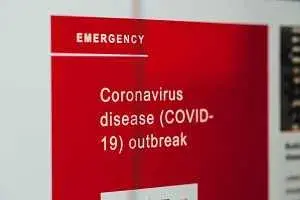MHA recent guidelines to curb Covid-19
The Ministry of Home Affairs (hereinafter referred to as ‘MHA’) on April 07, 2020 has issued an advisory to the State governments to invoke the Essential Commodities Act, 1955 for ensuring availability of essential goods1. The MHA has considered the reports on loss of production due to various factors including reduction in labour supply. In such a situation there is a possibility of inventory building/hoarding and black marketing, profiteering, and speculative trading. It is apprehended that these activities can significantly increase the price of essential commodities, eventually affecting the general public at large.
In this regard, the State governments and the UT administrations have been asked to take urgent steps to ensure availability of essential goods, by invoking provisions of the Act. These measures include the following:
- Fixing of stock limits,
- Price capping,
- Enhancing production,
- Inspection of accounts of dealers, and
- Other such actions as required
Towards the implementation of the above, the Ministry of Consumer Affairs, Food and Public Distribution, is authorising the State governments and the union territories to notify orders under the Act, by relaxing the requirement or prior concurrence of the Central Government up to June 30, 2020.
What is Essential Commodities Act, 1955?
The Essential Commodities Act, 1955 is an Act in India enacted to provide for the control of the production, supply and distribution of, and trade and commerce, in certain commodities to facilitate the interest of general public. Essential commodities under the Act can be classified as those goods which are essential to maintain an acceptable standard of living. Some of the essential commodities are drugs, fertilisers, food grains, edible oils, fuel and petroleum. Items to the essential commodities list are added by the government as and when required according to the prevalent situations. For example, the government recently included masks and hand sanitizers to the list of essential commodities. Owing to the COVID 19 outbreak, it was brought to the notice of the government that vendors have been engaged in unauthorised hoarding masks and sanitizers and are selling them at exorbitant rates.
Penalty for contravention of the Act
If a person is found to contravene with the provisions of the Act, it can be classified as a criminal offence punishable with imprisonment up to 7 years or with an imposition of fine or both. In view of the above advisory the MHA has further advised the State/Union territory Governments that may also consider detention of offenders under the Prevention of Black-marketing and Maintenance of Supplies of Essential Commodities Act, 1980.
[1] https://mha.gov.in/sites/default/files/DO%20Letter%20Dt.%207.4.2020.pdf
Related Posts
Novel Coronavirus (Covid -19) Outbreak: Delhi High Court takes its battle a Notch Higher
India: Threshold Limit under IBC Enhanced to INR 1 Crore amidst Coronavirus Crisis
Coronavirus Outbreak: IPAB adjourns hearings till April 21st and 22nd, 2020
India: The Functioning of the Indian Judiciary amidst Novel Coronavirus (COVID-19) Outbreak
Indian Supreme Court’s response to COVID – 19: extends period of limitation for all!


